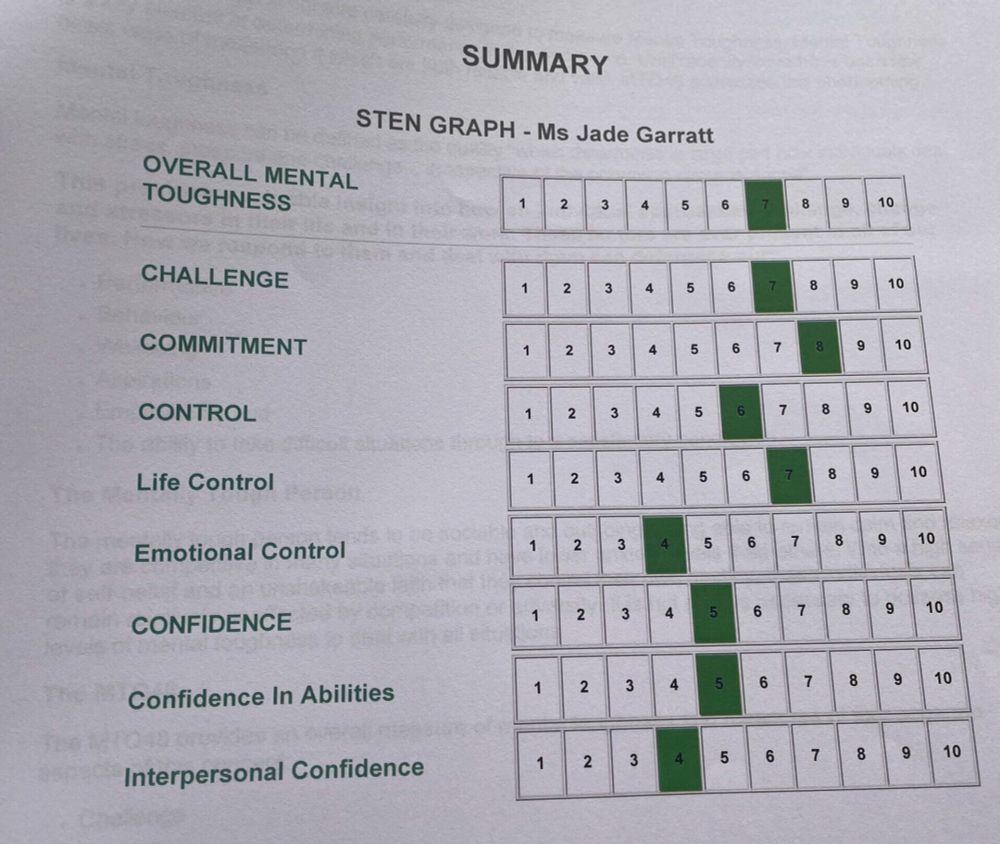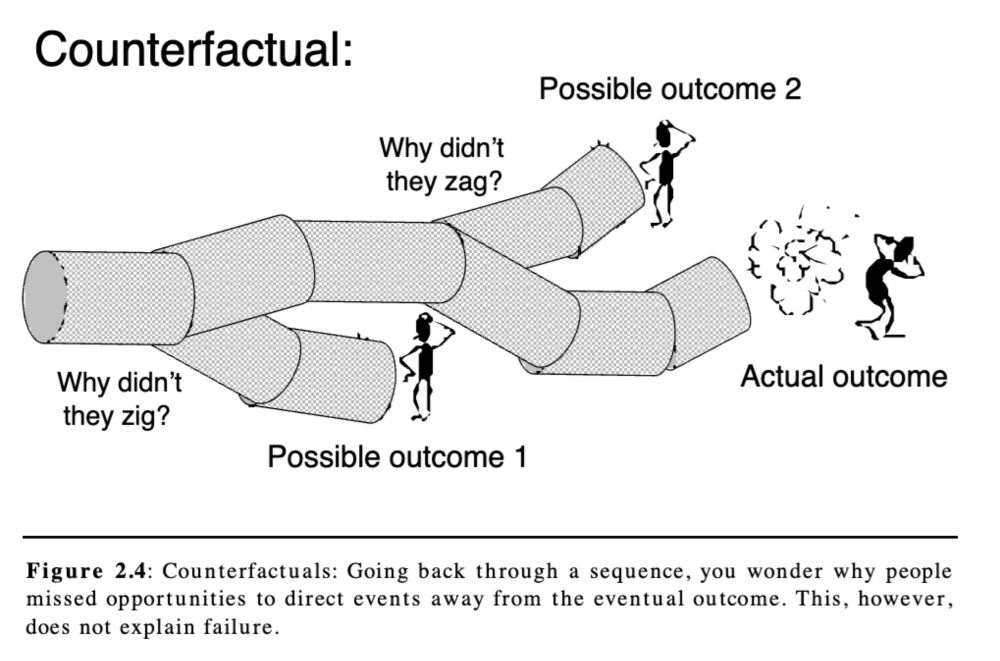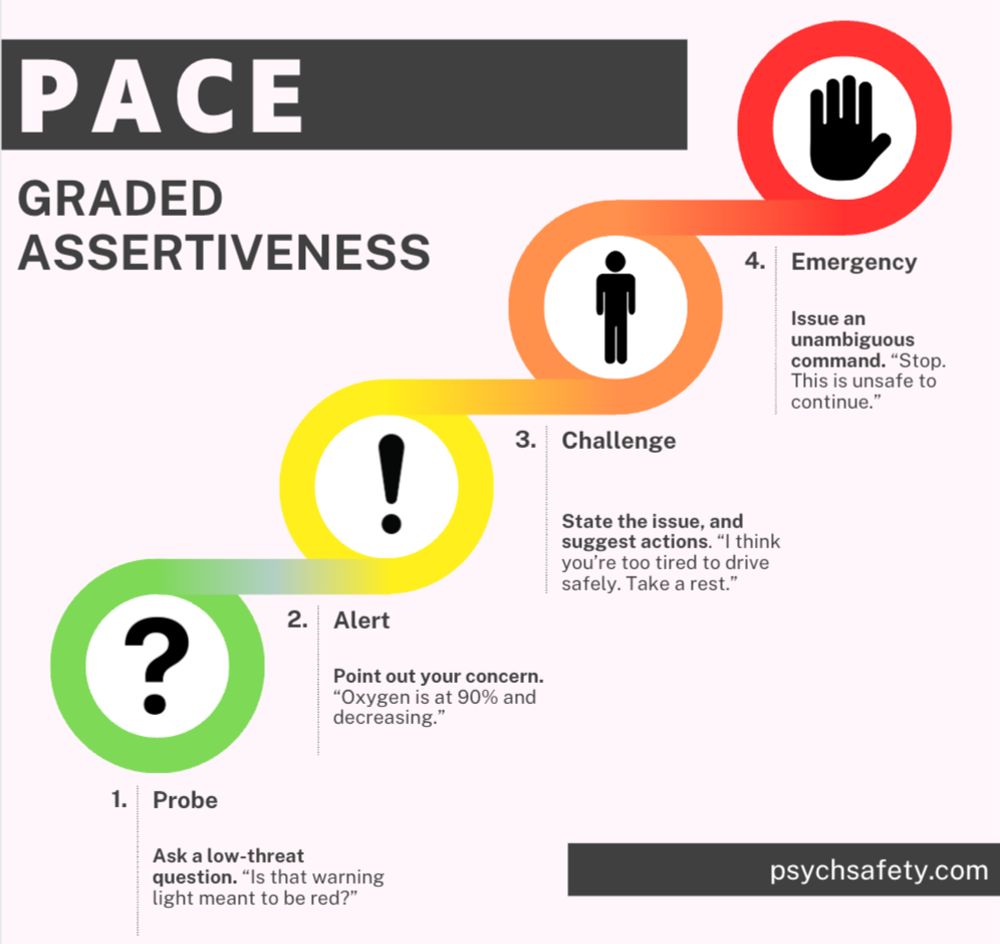
One is about interpersonal risk-taking, the other is about protection from harm.
Confusing them creates dangerous blind spots.
psychsafety.com/psychosocial...

One is about interpersonal risk-taking, the other is about protection from harm.
Confusing them creates dangerous blind spots.
psychsafety.com/psychosocial...
👉 Read the full piece on vertical and horizontal psychological safety: psychsafety.com/the-watermel...

👉 Read the full piece on vertical and horizontal psychological safety: psychsafety.com/the-watermel...
psychsafety.com/individual-r...

psychsafety.com/individual-r...
Counterfactuals: tidy, satisfying, and entirely imaginary.
We don’t learn from the world-that-didn’t-happen.
#HumanFactors #HOP #ComplexSystems
psychsafety.com/counterfactu...

Counterfactuals: tidy, satisfying, and entirely imaginary.
We don’t learn from the world-that-didn’t-happen.
#HumanFactors #HOP #ComplexSystems
psychsafety.com/counterfactu...
— Jade Garratt
Beautiful piece on how coaching builds psychological safety through humility, listening, and letting go of control.
#PsychSafety #Coaching #Leadership
psychsafety.com/coaching-and...

— Jade Garratt
Beautiful piece on how coaching builds psychological safety through humility, listening, and letting go of control.
#PsychSafety #Coaching #Leadership
psychsafety.com/coaching-and...
psychsafety.com/goodharts-la...

psychsafety.com/goodharts-la...
There are only 4 questions, and you can remain anonymous. Respond at the link in the comments, and you can provide your own qualitative insights too!
psychsafety.com/the-psycholo...

There are only 4 questions, and you can remain anonymous. Respond at the link in the comments, and you can provide your own qualitative insights too!
psychsafety.com/the-psycholo...
✨ Emergence
🌾 Substrate
🌳 Succession
🪲 Indicator species
🌊 Ecotones
Five ecological ideas that can transform how we think about change: psychsafety.com/five-ecologi...

✨ Emergence
🌾 Substrate
🌳 Succession
🪲 Indicator species
🌊 Ecotones
Five ecological ideas that can transform how we think about change: psychsafety.com/five-ecologi...
Leaders & policymakers at the blunt end.
The danger is the gap between them.
✏️ psychsafety.com/the-sharp-en...

Leaders & policymakers at the blunt end.
The danger is the gap between them.
✏️ psychsafety.com/the-sharp-en...
Marginalised colleagues often pay the highest price for “team-bonding” vulnerability rituals.
psychsafety.com/forced-vulne...

Marginalised colleagues often pay the highest price for “team-bonding” vulnerability rituals.
psychsafety.com/forced-vulne...
psychsafety.com/reflections-...

psychsafety.com/reflections-...
Read it here: psychsafety.com/reflections-...

Read it here: psychsafety.com/reflections-...
11 videos, slide deck, templates + resources — everything you need to run powerful psych safety sessions.
10% off this September with code LAUNCH10 🎉
👉 psychsafety.com/psychologica...

11 videos, slide deck, templates + resources — everything you need to run powerful psych safety sessions.
10% off this September with code LAUNCH10 🎉
👉 psychsafety.com/psychologica...
Eye contact ≠ trust.
Stammering ≠ fear.
If we want psychological safety, we need to fix systems, not people.
psychsafety.com/reflections-...

Eye contact ≠ trust.
Stammering ≠ fear.
If we want psychological safety, we need to fix systems, not people.
psychsafety.com/reflections-...
Psychological safety must stay porous, inclusive, and evolving – or it risks becoming just another management fad.
psychsafety.com/reflections-...

Psychological safety must stay porous, inclusive, and evolving – or it risks becoming just another management fad.
psychsafety.com/reflections-...
Psychological safety isn’t built with “hacks.” Eye contact may help some people feel safe — for others, it feels like surveillance, dominance, or a demand to mask. One-size-fits-all advice risks harm.
psychsafety.com/not-feeling-...

Psychological safety isn’t built with “hacks.” Eye contact may help some people feel safe — for others, it feels like surveillance, dominance, or a demand to mask. One-size-fits-all advice risks harm.
psychsafety.com/not-feeling-...
psychsafety.com/the-amagasak...

psychsafety.com/the-amagasak...
#ParshaChat
psychsafety.com/pace-graded-...

#ParshaChat
psychsafety.com/pace-graded-...
The books in this collection beautifully illustrate what psychological safety can look and feel like for children, whether that’s embracing mistakes, finding the courage to speak up, or learning to navigate conflict.
psychsafety.com/psychologica...

The books in this collection beautifully illustrate what psychological safety can look and feel like for children, whether that’s embracing mistakes, finding the courage to speak up, or learning to navigate conflict.
psychsafety.com/psychologica...
psychsafety.com/psychologica...

psychsafety.com/psychologica...
🗳️ Vote for Bold Leadership on August 1st.
🗳️ Vote for Bold Leadership on August 1st.
psychsafety.com/barriers-to-...

psychsafety.com/barriers-to-...
People will observe how we respond to others when someone admits a mistake, raises a concern, or takes some other interpersonal risk, and that influences how likely they are to take similar risks.
Read more: psychsafety.com/how-you-resp...

People will observe how we respond to others when someone admits a mistake, raises a concern, or takes some other interpersonal risk, and that influences how likely they are to take similar risks.
Read more: psychsafety.com/how-you-resp...

